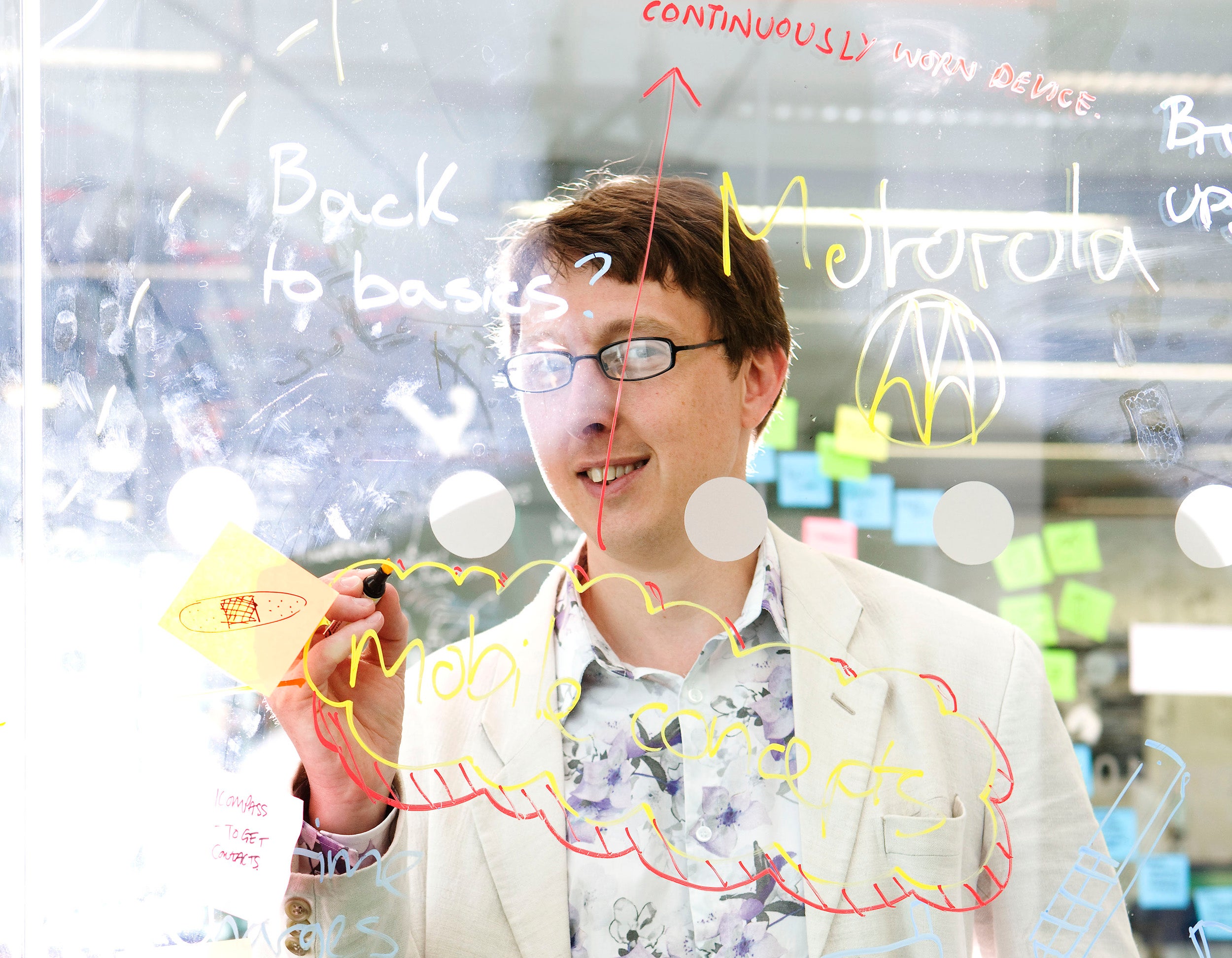Northumbria’s design for life
Mark Bailey, director of innovation design at Northumbria School of Design, on how the Masters course benefits from strong industry connections

Northumbria School of Design at the University of Northumbria draws on a rich heritage. Their alumni include Sir Jonathan Ive, the chief designer at Apple and Rob Law, the founder of Trunki. The school has formal links with global businesses including Unilever, Philips, Nike, Mulberry and Abercrombie & Fitch.
Mark Bailey is Director of Innovation design at Northumbria. He also leads the university’s partnership with Unilever and other companies. Bailey says: “One of our key strengths is our exceptionally strong connection with industry and our industrial partners. Our postgraduate programme in Multidisciplinary Innovation attracts graduates from many disciplines, not just art or design. We have engineering and marketing graduates, for example.
“Our aim is not necessarily to turn engineers into designers, but to develop their creativity, which can be used to make positive changes in their profession. The course enables students, through creative, collaborative practice, to add value to other professions and have a real impact on society. The key elements of the Masters course is innovation across sectors.”
If you want to make a difference in the world and learn how to do it in a safe environment, then this is the place to be
Students are able to work in collaboration with local businesses, charities, SMEs and household names. At the Northern Design Centre in Gateshead, students work in studios, which Bailey says are “a professional working environment. It’s fast-paced, creative and relevant.” The Masters course is about change: changing students to think creatively, changing organisations or products and ultimately, changing society.
The School of Design has led the Salon project, an initiative focused on reducing global waste in a world where the population is rising but resources are diminishing. Students have been redesigning consumer products, like the kettle and toaster, so they are repairable or have longevity.
Bailey explains: “It’s an authentic learning experience, addressing real world problems. Although aspects of the course are theoretical, our connections with industry give students a strong sense of reality. Design-led approaches can solve problems. On this Masters programme, students develop a sense of maturity and self awareness. They know their strengths, how to negotiate and develop a sense of purpose.”
Bailey sees his purpose as “launching graduates into the world where they can bring about positive change”. On graduation, students have excellent employment opportunities: some start their own businesses, others go into innovation-focused roles in industry and an increasing number go on to study PhDs. “If you want to make a difference in the world and learn how to do it in a safe environment, then this is the place to be,” maintains Bailey.
Subscribe to Independent Premium to bookmark this article
Want to bookmark your favourite articles and stories to read or reference later? Start your Independent Premium subscription today.

Join our commenting forum
Join thought-provoking conversations, follow other Independent readers and see their replies